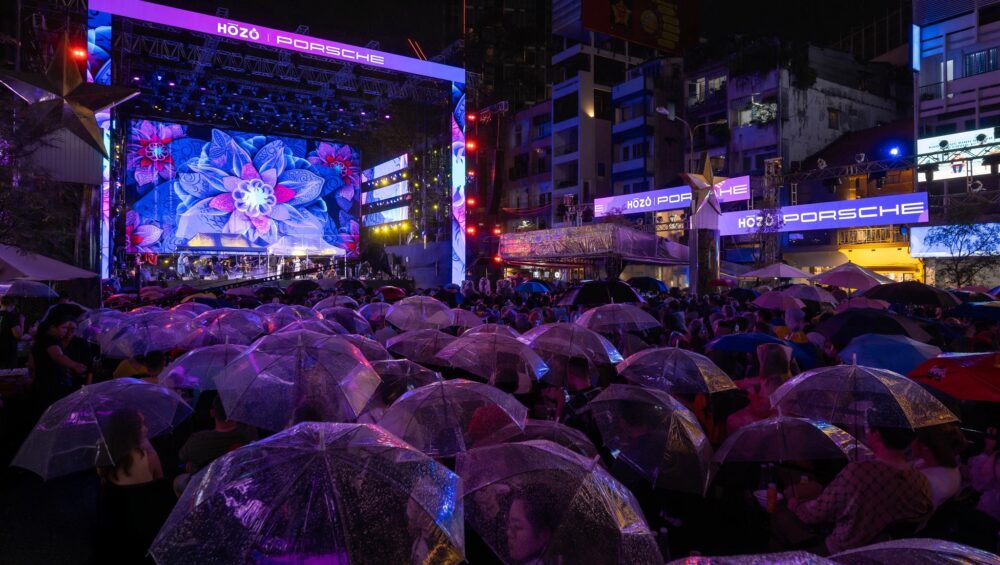In recent years, Vietnam has steadily affirmed its position as an ideal destination for internationally scaled festivals. With its rich cultural diversity, unique national identity, and stunning natural landscapes, Vietnam has become a gathering place for a wide range of global cultural, artistic, culinary, and musical events. From the ancient charm of Hanoi and the vibrant energy of Ho Chi Minh City to popular tourist hubs like Hue, Da Nang, Hoi An, and Nha Trang—festive colors and excitement can be found year-round across the S-shaped land.
The Strong Growth of International Festivals in Vietnam
Since the economic reform (Đổi Mới) in 1986, Vietnam began opening up and integrating globally, paving the way for international events to enter its cultural and social life. Initially, these were small-scale cultural exchanges, but they have since evolved into large-scale festivals that attract hundreds of thousands of visitors annually. Especially since the early 2000s, international festivals in Vietnam have flourished both in quantity and quality, contributing to the country’s rising global image.
Statistics show that Vietnam hosts over 50 international festivals annually, with an impressive growth rate of 30% each year. These events are not merely entertainment platforms—they are also profound cultural bridges that help promote Vietnam’s image, foster international exchange, and contribute approximately 15% to the overall tourism industry’s revenue.
The Remarkable Benefits of International Festivals
The role of international festivals in building tourism branding and enhancing national standing is undeniable. These events provide Vietnam with valuable opportunities to showcase its rich cultural identity—from traditional arts and distinctive cuisine to contemporary music and visual arts.
In addition, international festivals:
- Boost local economies: The influx of visitors stimulates hospitality, dining, transportation, and retail sectors.
- Encourage infrastructure development: Host cities often see major investments in transportation, hotels, and convention centers.
- Create jobs and revive traditional crafts: Handicraft villages and folk performance groups gain new life through festival inclusion.
- Strengthen communities and elevate international status: Locals get to engage with global cultures, while international visitors experience Vietnam’s hospitality and cultural diversity.
Types of International Festivals in Vietnam
International festivals held in Vietnam span various fields, catering to the diverse interests of both domestic and international audiences:
- International Music Festivals:
Music, as a “universal language,” is a key feature of many Vietnamese festivals:
- Monsoon Music Festival (Hanoi): A major contemporary music festival featuring both local and international artists.
- Hozo Music Festival (Ho Chi Minh City): A dynamic outdoor event in the heart of the city.
- Epizode (Phu Quoc): A multi-day beachside electronic music extravaganza attracting top global DJs.
- Quest Festival: A creative space blending music, art, and nature.
- Cultural and Artistic Festivals:
- Hue Festival: Held biennially, this is one of Vietnam’s most historic international cultural events, combining traditional and modern performances.
- Hoi An Light Festival: The ancient town glows with thousands of lanterns and artistic light displays.
- Vietnam Contemporary Art Biennale: A large-scale exhibition featuring artists from Vietnam and abroad.
- International Culinary Festivals:
Vietnam is increasingly known for multinational culinary events where visitors can sample dishes from a variety of cultures:
- International Food Festival (Hanoi): Held in Thong Nhat Park, featuring hundreds of booths from 20+ countries.
- West Lake International Food & Culture Festival: Culinary exchange paired with artistic performances.
- Food Festivals in Ho Chi Minh City, Da Nang, and Nha Trang: Celebrating both regional delicacies and global cuisine.
- International Film Festivals:
- Hanoi International Film Festival (HANIFF): A major gathering for filmmakers from Asia and around the world.
- Vietnam Film Festival: A convergence of Asian and European cinema.
Seasonal Festival Experiences – Vietnam’s Year-Round Festive Spirit
Thanks to its diverse climate from north to south, international festivals in Vietnam are held throughout all four seasons, making it easy for travelers to plan suitable itineraries:
- Spring (Jan–Mar): A time for traditional cultural festivals and flower celebrations. Hue Festival and the Da Lat Flower Festival are must-sees.
- Summer (Apr–Jun): A season for music and street art. Monsoon Festival and Da Nang International Fireworks Festival headline the schedule.
- Autumn (Jul–Sep): Ideal for culinary, film, and contemporary art festivals. Pleasant weather makes it suitable for both indoor and outdoor events.
- Winter (Oct–Dec): Marked by light festivals, New Year’s celebrations, and multi-day music events like Epizode.
Positive Impacts on Tourism and the Economy
International festivals play a central role in Vietnam’s sustainable tourism strategy. They not only attract more foreign visitors and extend their stays, but also increase average tourist spending.
For example, Hue Festival 2018 welcomed over 1.2 million visitors, including 400,000 international guests. As a result, revenue from tourism, accommodations, and dining surged, contributing significantly to the local budget.
Similarly, Hoi An capitalizes on its lantern festival and cultural events to attract nearly 2 million tourists annually. Nha Trang’s Sea Festival has helped the city become a leading beach destination, with culinary sector revenues rising over 47% during festival periods.
The Future of International Festivals in Vietnam
With robust growth and increasingly open cultural policies, Vietnam is steadily establishing itself as a premier host for international events. In the future, festivals will be even more professionally organized to meet the growing demand for cultural exchange and entertainment.
Moreover, the successful hosting of international festivals helps build Vietnam’s image as a friendly, dynamic, and globally integrated nation—poised to become a new cultural and tourism hub in Asia.
If you’re planning a trip to Vietnam, don’t miss the chance to immerse yourself in these unique international festivals—where you can experience some of the most diverse and vibrant cultural colors in the region.




